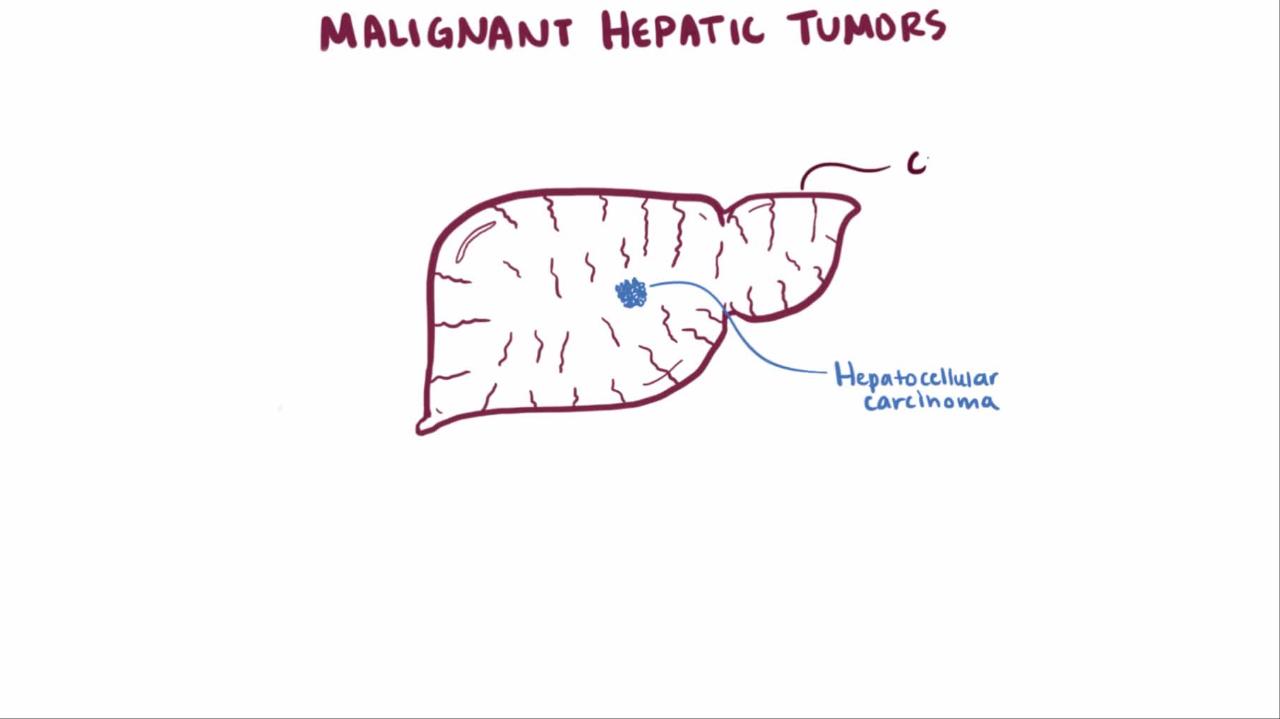Hepatocellular carcinoma is a cancer that begins in the liver cells and is the most common of the primary liver cancers.
- Having hepatitis B or hepatitis C or drinking excess alcohol increases the risk of developing hepatocellular carcinoma, especially in people with cirrhosis of the liver.
- People may have abdominal pain, lose weight, and feel a large mass in the upper right part of the abdomen.
- Doctors base the diagnosis on results of a blood test and imaging tests.
- This cancer is usually fatal unless it is diagnosed early.
Hepatocellular carcinoma is the most common type of cancer originating in the liver. It usually occurs in people who have severe scarring of the liver (cirrhosis).
In certain areas of Africa and East Asia, hepatocellular carcinoma is more common than in other part of the world and is a common cause of death. In these areas, many people have chronic infection with the hepatitis B virus . The presence of this virus in the body increases the risk of hepatocellular carcinoma more than 100-fold. Hepatitis B can cause cirrhosis, but it can lead to hepatocellular carcinoma whether cirrhosis develops or not. Cirrhosis due to chronic hepatitis C, fatty liver disease, or excessive alcohol use also increases the risk of this cancer.
Having hemochromatosis (a hereditary disorder that causes the body to absorb too much iron) also increases the risk of developing hepatocellular cancer. Iron may accumulate in the liver and damage it.
Hepatocellular carcinoma sometimes results from exposure to certain cancer-causing substances (carcinogens). In subtropical regions where hepatocellular carcinoma is common, food is often contaminated by carcinogens called aflatoxins, substances that are produced by certain types of fungi.
In North America, Europe, and other geographic areas where hepatocellular carcinoma is less common, the most common cause is chronic hepatitis C. Cirrhosis, most commonly long-standing cirrhosis related to chronic hepatitis C, fatty liver disease, or chronic alcohol use, can also lead to hepatocellular carcinoma. The risk is lower with primary biliary cholangitis than with other types of cirrhosis.

